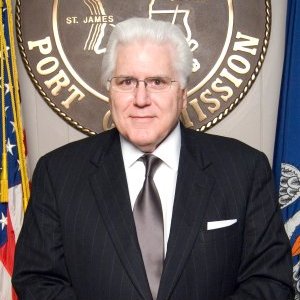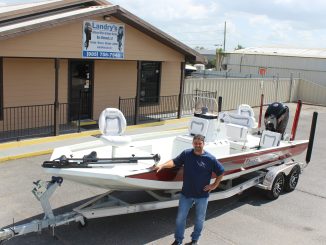
Port director says it will support millions of dollars in trade
At the Port of South Louisiana, deepening the Mississippi River is a problem that can be measured in dollars and sense.
Port Executive Director Paul Aucoin put the figure at $1 million lost per foot or how much less in cargo a ship can carry above the 50-foot minimum draft needed for a full load on the river to the port.
In February, when he saw the project listed as high as No. 7 on President Donald Trump’s list of 50 Emergency and National Security Projects released in January, Aucoin said he finally felt like he’d been heard.
The $317 billion needed to do all the projects listed has not been allocated yet, Aucoin said. But the list itself appears to be Trump’s initial program and part of the $1 trillion he committed over 10 years to rebuild the nation’s infrastructure.
Landing a spot on the list and particularly No. 7 represents a milestone to Aucoin, validating a litany of requests for project funding to state and federal officials to maintain needed depth at the mouth of the river.
He attributed some of the attention to a chance discussion with the Washington, D.C., firm Meltz Communications, that he ended up hiring to get the word about the project need and it has done just that. The firm has been getting Aucoin’s opinion pieces published in major business publications, which he has welcomed toward helping move this effort ahead.
“It’s not a Louisiana problem,” Aucoin said. “It’s a U.S. problem.”
Aucoin wants to tap the Harbor Maintenance Trust Fund by about $1 billion, which he estimated would provide about 10 years of maintenance. The money is available in a fund, estimated to have $9 billion, accrued from a tax assessed on cargo collected and earmarked for this work.
“It would keep us more reliable, more competitive,” Aucoin said.
The Mississippi River connects the Port of South Louisiana and tributaries to 31 states and all that cargo comes to the port’s grain elevators, oil storage terminals and then sent out on the river to 50 countries, he said.
Aucoin said the port is already exceeding last year’s 59,000 grain barges.
Less river depth means lighter barges or less cargo, which increases its cost, he said.
“We become unreliable shippers and they can go somewhere else,” Aucoin said. “This can apply to any cargo coming through the port.”
Aucoin said the river sedimenting was a reoccurring problem that happened often last year.




Be the first to comment